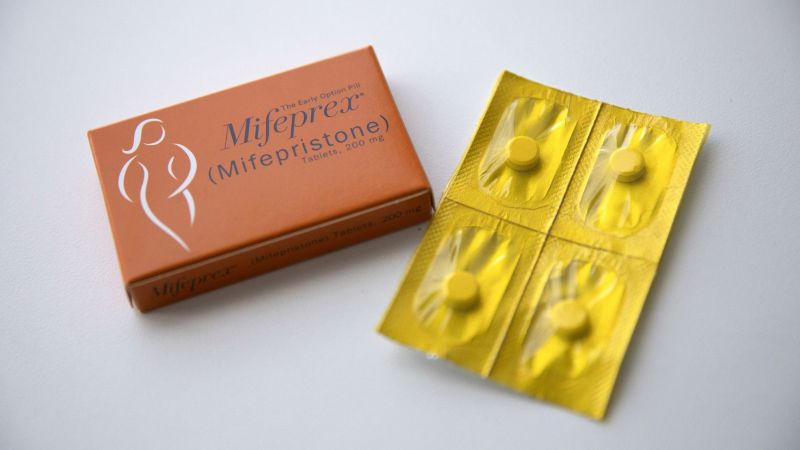Governor Jeff Landry of Louisiana recently signed a bill classifying abortion-inducing drugs misoprostol and mifepristone as Schedule IV controlled substances, making them subject to the same regulations as narcotics and depressants. The law criminalizes possession of these drugs without a prescription and distributing them to others without their consent. Pregnant women using the drugs for their own consumption are exempt from penalties, and doctors are allowed to prescribe them. Violations of the law could result in felony charges and prison time of up to five years, with fines of up to $5,000.
Critics of the bill argue that mifepristone and misoprostol are not dangerous and do not require such strict regulation as Schedule IV substances. They fear that the law could create false perceptions about the medications and hinder access to necessary care for women. However, supporters, including Republican lawmakers and anti-abortion advocates, believe the legislation is necessary to protect expectant mothers. State Senator Thomas Pressly, who sponsored the bill, maintains that it will not prevent the legitimate use of the drugs for medical reasons, despite opposition from healthcare professionals and medical students expressing concerns over the reclassification.
In medication abortions, mifepristone blocks the hormone progesterone needed for pregnancy, followed by misoprostol to induce contractions. While misoprostol is commonly used to prevent stomach ulcers and has been available at pharmacies for years, the combination with mifepristone for abortion has sparked controversy and legal challenges. With abortion already banned in Louisiana without exceptions for rape or incest, the reclassification of these drugs adds another layer of restrictions on reproductive healthcare in the state. Republican officials see the law as a way to further limit access to abortion services and protect the rights of the unborn.
As the bill becomes law in Louisiana, its impact on reproductive rights and access to abortion care remains a contentious issue. The legislation reflects a broader trend of states enacting stricter regulations on abortion following the Supreme Court’s overturning of Roe v. Wade. The ongoing legal battles over medication abortion, including the challenge to the FDA’s approval of mifepristone, highlight the polarizing nature of the issue and the complexities surrounding women’s reproductive health and autonomy. A decision on the case is expected by July, further intensifying the debate on abortion rights and restrictions in the United States.
Overall, the reclassification of abortion-inducing drugs in Louisiana as Schedule IV substances represents a significant shift in the regulation of reproductive healthcare in the state. While proponents argue that the law protects women and unborn children, opponents view it as an unnecessary restriction on access to abortion services and reproductive rights. The conflicting perspectives on the issue reflect the broader political and ethical debates surrounding abortion in the United States, with implications for healthcare policy, women’s rights, and the ongoing battle over reproductive freedom. As the legal challenges and controversies continue, the future of abortion access in Louisiana and beyond remains uncertain.


